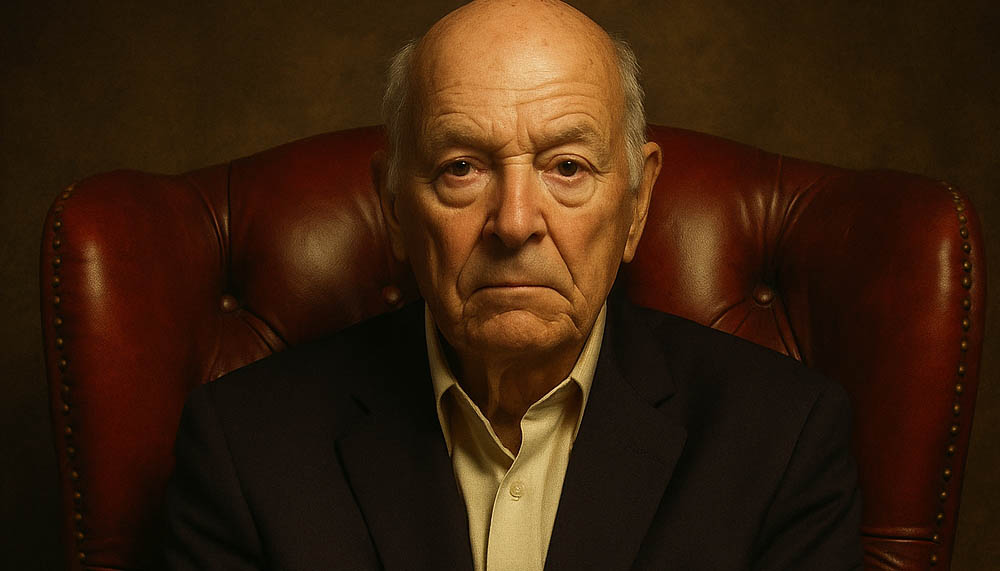
Contact Me Today
Gerard Dunning, Terrigal, NSW 2260, Australia
What's on your mind?
Fill out the form below and we'll get back to you.

Legendary in his own mind, chaotic in reality
Meet The Hedgehog, a prickly, manic, and endlessly self-important man in his later years, scrambling to write his own eulogy after a terminal diagnosis. With a pen in hand and a whisky glass within reach, he conjures a heroic, chaotic, and outrageously exaggerated version of his life — loves conquered, battles fought, work victories immortalized. A bittersweet comedy, "The Hedgehog" is a kaleidoscope of memory, distortion, and bravado. By the end, the nickname that haunted, teased, and defined him lands with a mischievous flourish, revealing a man who, despite everything, has the last laugh
At its heart, The Hedgehog is not simply a comedy about a man writing his final words; it is an exploration of what happens when the ego collides with mortality. The central figure spends his final days constructing a personal myth, a self-written script for posterity. Yet the more he writes, the more his past intrudes, and with it the distortions and defenses that shaped his life.
From a psychological perspective, this character is wrestling with cognitive dissonance. He has been diagnosed with a terminal illness — a fact he never directly acknowledges on stage — but rather than face the vulnerability and fear that diagnosis brings, he throws himself into performance. He clings to an inflated version of himself, constructing a grand finale that will, he believes, outshine his failings. This is a textbook case of narcissistic defense: when confronted with loss or mortality, the ego responds by amplifying its own importance, refusing to allow weakness or imperfection to surface.
The memory fragments — the old flame, the school friend, the colleague — are crucial here. They act as intrusions, surfacing unbidden like half-remembered dreams or critical inner voices. Each one begins as a stylised caricature, echoing the inflated way he wishes to see himself, only to slip and reveal harsher truths: the flame who recalls his drunkenness, the colleague who mutters about deadlines missed, the school friend who mocks his fragility. These fragments are not literal hauntings but projections of his own psyche — his superego and his critics made flesh. They are the reality he cannot fully repress.
The comedy arises from the tension between these two versions of reality: his flamboyant, self-aggrandising narrative and the fractured, contradictory recollections that leak in. He performs grandeur, yet the audience sees the cracks. The laughter is bittersweet: we recognise in him the human urge to make sense of our lives by editing, exaggerating, or erasing parts of the past.
What makes The Hedgehog poignant is the ambiguity of its ending. As he fades and his words are read at the lectern, the audience is left to wonder whether he achieved clarity or remained trapped in distortion. Was his final gesture an act of repentance, or simply another flourish of ego? The play does not resolve this; instead, it mirrors the unresolved nature of our own lives. Few of us achieve tidy narratives.
In psychological terms, The Hedgehog is a study of ego at the threshold of mortality — a man defending against despair with humour, bravado, and delusion. The fragments are his past breaking through denial, reminding us that self-image is never a solitary construction but shaped in the tension between how we see ourselves and how others see us.
And therein lies its power. To watch The Hedgehog is to laugh at his absurdity, but also to recognise our own small vanities, our own myths and distortions. It is a comedy, yes, but one with teeth, pricking us, reminding us that the stories we tell about ourselves may not be the ones others remember.
This work is licensed under the Creative Commons Attribution-NonCommercial-ShareAlike 4.0 International License.
Download "The Hedgehog" ScriptThis work is licensed under the Creative Commons Attribution-NonCommercial-ShareAlike 4.0 International License.
Please send performance details to: [email protected]
For further clarification or to request commercial use rights, contact the author directly.
By proceeding with any performance of Plays by Gerard Dunning, you agree to adhere to the terms of this license.
Thank you for visiting my website. I look forward to collaborating with you.
Make a Payment via Square